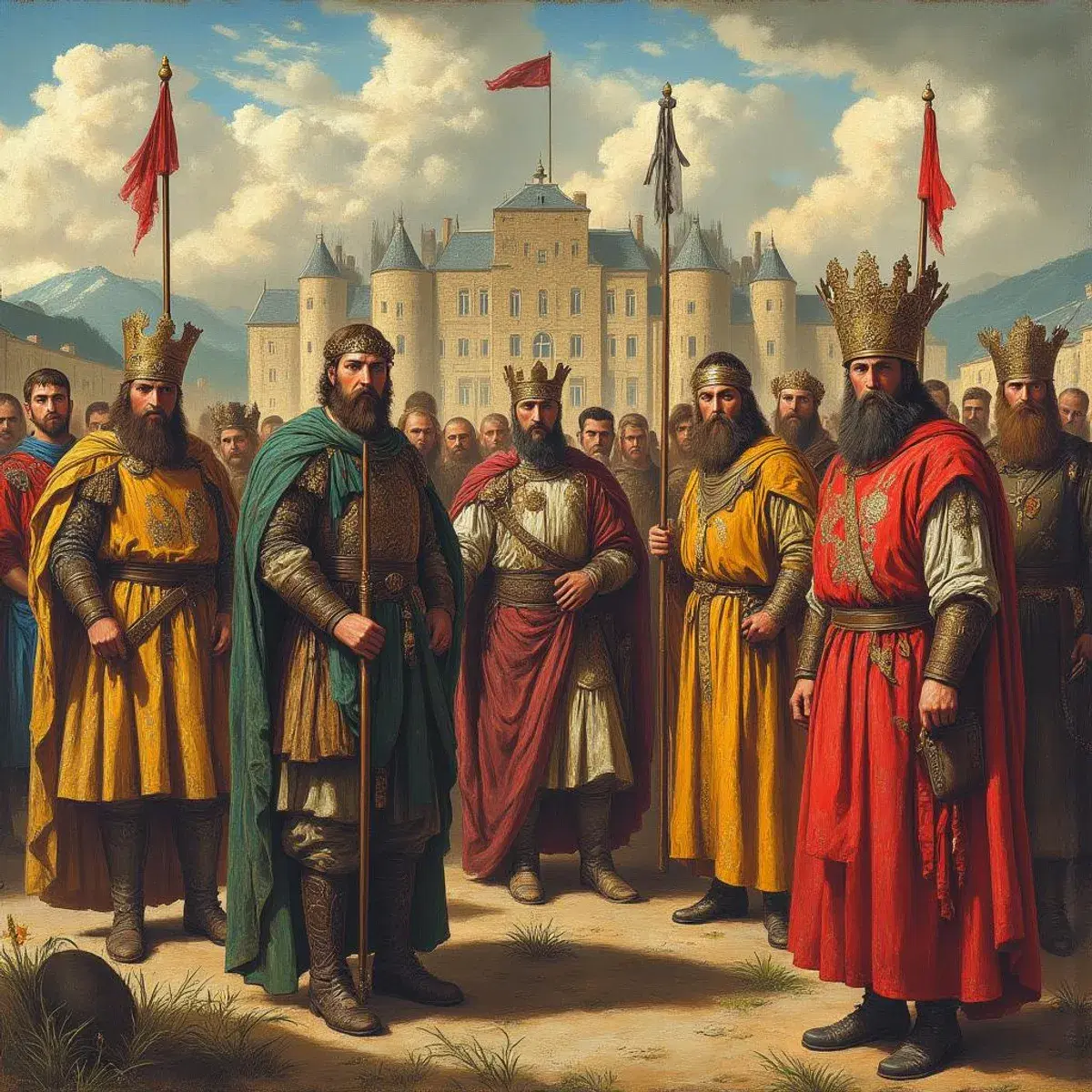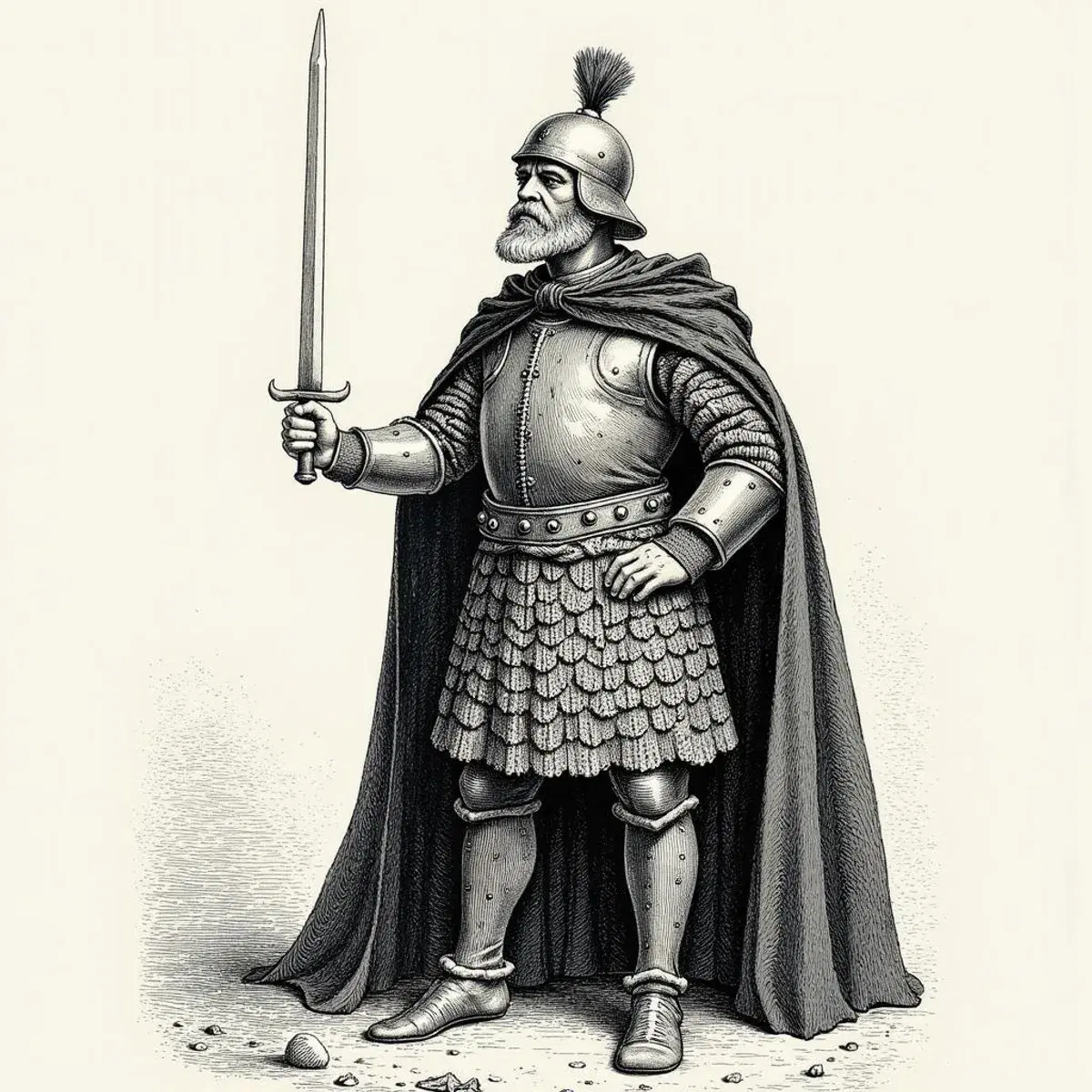Rise of the Carolingians: From Clovis to Pepin the Short
The story of medieval Europe is full of exciting changes, with kingdoms growing, falling, and leaders who changed history forever. One of the most interesting groups in this history is the Franks, a Germanic tribe. Their story begins with Clovis, who built a strong kingdom, and ends with the rise of the Carolingian dynasty, full of battles, smart decisions, and powerful rulers.

Carolingians
Fall of the Merovingians
Clovis started the Merovingian dynasty and ruled over a strong and united kingdom in what is now France and parts of Germany. But after his death, the kings who followed him became weak. Over time, they lost power and became known as the "do-nothing" kings. One writer from that time said, "The kings had only the name and nothing except food and drink. They stayed in the countryside all year until May. Then they would meet the people, accept gifts, and go back home until the next year."
These kings had no real power. Instead, important nobles took charge, especially the "Mayors of the Palace." These mayors started as helpers to the king but eventually became the ones who actually ruled. By the time the Moors entered Spain, the Mayor of the Palace position had become so powerful that it was passed down in one rich and influential family.
Charles Martel
In 719, Charles, the son of the previous Mayor of the Palace, took over the role. This was a dangerous time for the Frankish kingdom. Civil wars were tearing the land apart, the Saxons from the north were attacking, and the Moors were pushing up from Spain into France.
Charles proved to be an incredible leader. He stopped the fighting between the nobles and brought all the Frankish lands under his rule. He pushed back the Saxons, forcing them to retreat to their own lands. But his greatest challenge came in 732 when he faced the Moors near the city of Tours.
The Moors, who had already conquered Spain, thought they would easily defeat the Franks. They marched into southern France with an army full of riches they had taken from other lands. But Charles and his soldiers were ready. The Battle of Tours was long and fierce. The lightly armed Moorish cavalry charged the heavily armored Frankish soldiers over and over, but Charles’s men stood strong like a wall. By the next morning, the Moors had fled, leaving their tents and treasure behind.
This victory stopped the Moors from advancing further into Europe and made Charles a hero. He earned the nickname "Martel," which means "The Hammer," because of how he crushed his enemies. His success united the kingdom and set the stage for his family to take even greater control.

Charles Martel
A New Dynasty Begins
Charles Martel’s sons took over after his death, but the kingdom still had its struggles. The kings from the Merovingian family remained on the throne, but they had no real power. The Mayors of the Palace, like Charles and his sons, were the ones who truly ruled.
Eventually, one of Charles’s sons, Pepin, decided it was time for a change. Known as "Pepin the Short," he was smart and ambitious. He didn’t see the point of keeping a powerless king on the throne. So, he asked the Pope for advice.
At the time, the Pope needed help from the Franks to deal with enemies in Italy. When Pepin’s messengers asked, "Should the person with real power be called king?" the Pope agreed. He said, "It is better to give the title of King to the one who actually holds the power."
With the Pope’s support, the last Merovingian king was removed. His long hair, a symbol of his royal status, was cut, and he was sent to live in a monastery. Pepin was crowned king, starting the Carolingian dynasty.
Legacy of Pepin the Short
Pepin ruled wisely and fairly. He brought stability to the kingdom and strengthened the relationship between the Franks and the Church. This alliance would shape European history for centuries.
When Pepin died, his sons took over, and the Carolingian dynasty grew even stronger. One of his descendants, Charlemagne, became one of the most famous rulers in history. Charlemagne expanded the Frankish kingdom and left a lasting mark on Europe.





